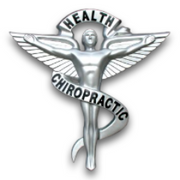
If it weren’t for your body’s nervous system, you wouldn’t have a sense of touch. The brain and spinal cord work in conjunction with the peripheral nervous system, or the sensory and motor nerves, to process different physical sensations, including pain. Here, learn more about these uncomfortable bodily sensations and why painkillers are not a lasting pain management solution.
What Do I Need to Know About Bodily Pain & Painkillers?
How Pain Starts
Physical pain starts at the point of inflammation or injury, such as a cut from a thorny bush or a shin bruise from running into a coffee table. The body’s pain receptors immediately react to the sensation, releasing chemicals that send pain signals to the spinal cord and the brain. The cerebral cortex processes the signals quickly to let you know about the injury.
Pain signals from somatic structure injuries—those involving the skin, muscles, connective tissue, and bones—are easy for pain receptors to detect. Internal organs, however, are more complicated. They react to inflammation, stretching, and lack of oxygen more readily than injuries from cuts or burns.
How Memory Affects Pain Perception
 Your memory helps your body process pain. When you get a paper cut, your brain not only reacts to the current discomfort, it remembers paper cuts from the past to help you identify the sensation.
Your memory helps your body process pain. When you get a paper cut, your brain not only reacts to the current discomfort, it remembers paper cuts from the past to help you identify the sensation.
Memory and pain perception also have emotional connections. Patients who have positive experiences with past treatments enjoy more relief compared to those who don’t.
Why Painkillers Aren’t the Solution
While over-the-counter and prescription painkillers provide quick pain management, they mask rather than treat the problem. The body uses pain to let you know something is wrong and that you need to take care of it. A sore, aching leg needs rest, and a strained back needs a hot or cold pack.
If you numb the pain with assorted painkillers, you could reinjure the stressed area of your body without realizing it, resulting in more severe discomfort and a longer recovery time. Additionally, some painkillers can cause physical addictions.
Instead of using painkillers, look into holistic pain management options such as chiropractic care, acupuncture and acupressure, physical therapy, massage, and hot and cold therapies. They treat the symptoms in addition to providing relief.
Discuss the best pain management program for your needs at Lincoln Chiropractic Center. Based in Lincoln, NE, they accept Medicaid and Medicare in addition to providing a range of holistic services, including sciatica and infant chiropractic treatments. Call (402) 464-5567 to schedule an appointment or visit the center online for more about natural pain management.
About the Business
Have a question? Ask the experts!
Send your question

